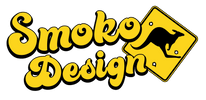I would have been six when my granddad took me to a knife shop in Paris and bought me my first knife. An Opinel Number 6, a very small and simple pocket knife that made me feel like a man even if the blade had been purposely blunted. I was considered old and responsible enough to have my own knife!
It was followed by many more pocket knives that my granddad found at flea markets and repaired. When he passed away I thought I’d have a go at making a knife myself, and I waited for years until I had a place that had a workshop.
This is how I slowly became a knife maker, joined the Australian Knifemaker’s Guild in 2013, became the State representative for a while, got into writing for knife magazines and taught the art of knife making for a number of years.
And then, one day in 2019 at the knife making symposium at Tharwa Valley Forge in Canberra where I was teaching, Quentin, a French knife maker who was sitting with me at smoko pulled out of his pocket a small knife entirely made of steel, more precisely a Douk Douk, a traditional French knife that has been around for a long time.
I immediately saw the need an Australian equivalent, straight to the point, simple and robust. A knife comfortable in a kitchen and handy while camping, fishing, hunting or in the workshop. A light tool that you forget is in your pocket and doesn’t make you look like a serial killer when you spread some vegemite on a toast at smoko.
It also had to be easily decorated, personalised or customised. Therefore, the blades can be acid etched and the handles laser engraved with my own artwork or by customer’s demand.
Back in my workshop in Moutn Nebo QLD, I started drawing and filled up quite a few pages with sketches I didn’t like until I finally found the inspiration in an old American army canteen knife that I had in the shed and a 19th century French Navy/Marines knife, quite similar to the traditional clasp knives.
I had made hundreds of knives, but never a folding knife, so I invited Quentin to stay with me for a couple of weeks to teach me how to make a folding knife with a slip joint mechanism.
Once the final prototype was done, going into production became quickly complicated.
I naively looked for Australian manufacturers to get the different parts made, but we unfortunately don’t have the manufacturing capability to produce knives on a large scale and I had to resolve myself to look abroad.
The handles, the engraving, the cerakoting (a durable ceramic coating), the artwork and the final assembly are done locally in Brisbane, but the blades and the springs are made in Thiers, the French knife making capital. It would cost far too much if I had to make them myself!
After a few years and hundreds of knives made, Smoko Design is now a well-oiled mechanism but I am always looking for new ideas and I am confident that it will keep evolving in the coming years.
